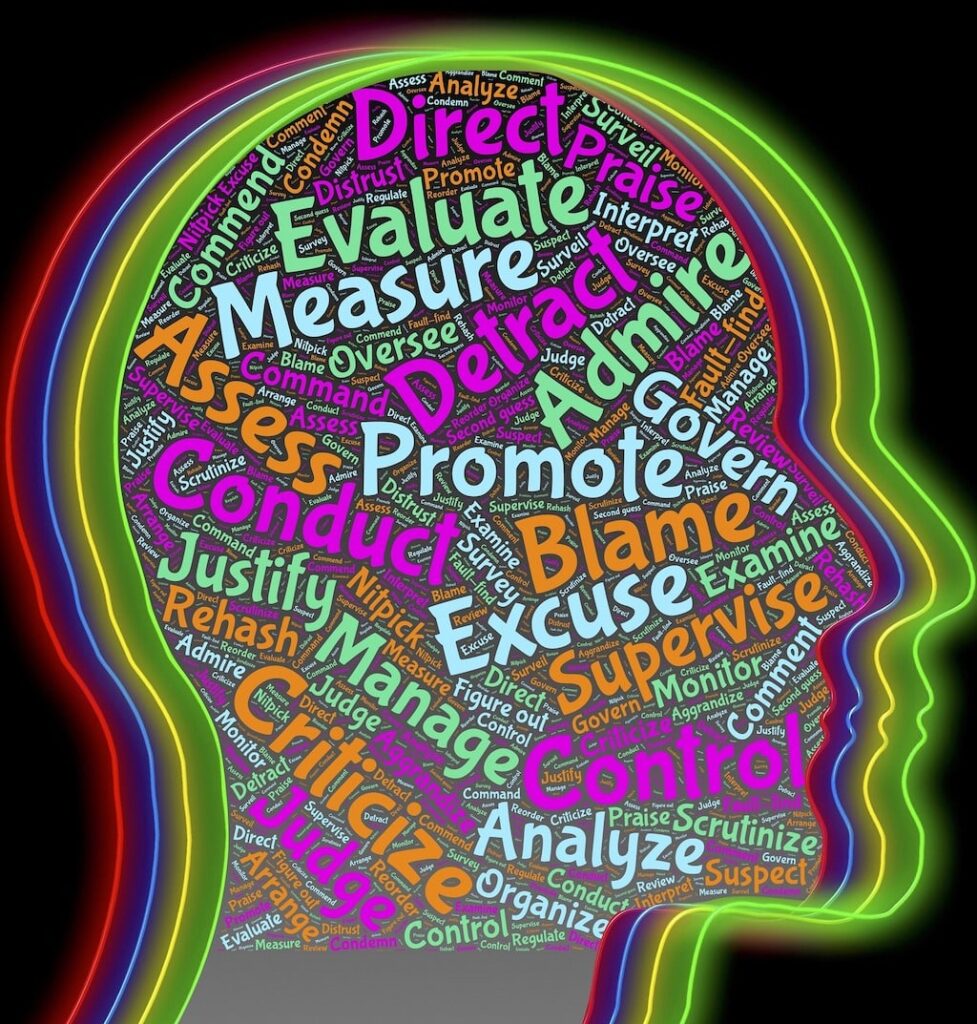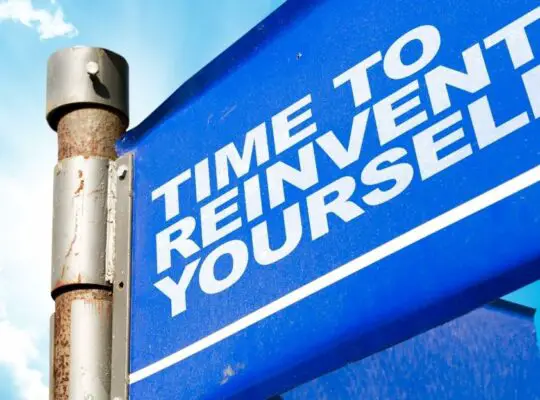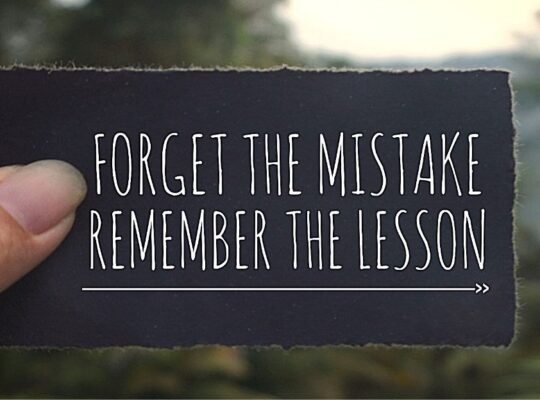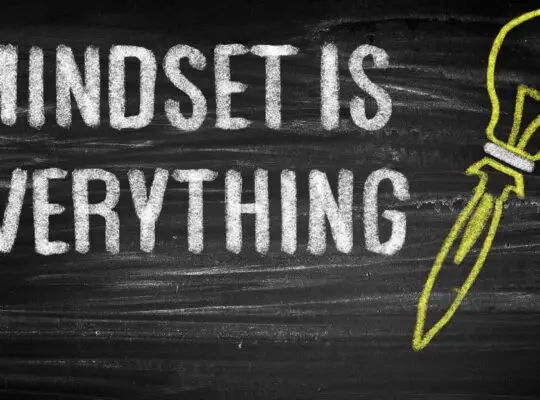Making excuses is something we all do now and then. Many excuses we make in life are to explain minor issues to others. But, when you start making excuses to yourself and explain away unhealthy or unwanted behaviors in your life, it may be time to stop and look at yourself carefully. It may also be time for a change in behavior.
First, we will examine the types of excuses we often make to ourselves and from where the need or urge to excuse our own behavior comes. Then, we will discuss the ways that making excuses in your life can actually harm you and keep you from achieving what you want in this world.
If you are tired of not getting what you deserve or of being stuck in the same pattern of behavior, maybe it is time you stopped making excuses and starting making a difference. We will even share with you some tips for changing your ways so that you can learn to stop making excuses that are harming your life.
What are Excuses? Why do we make them?
From an early age, we all learn to offer explanations for our behavior to others. Not all excuses are negative or have adverse consequences. After all, sometimes you just need others to know why you were late or what happened that caused you to miss a commitment.
Sometimes, excuses are good and can help you maintain your value in a relationship or situation. These excuses are really explanations, and they are usually harmless and have few negative consequences.
There are, however, more insidious reasons for making excuses in your life. These more dangerous types of excuses are usually ways to shift the blame to someone else, to play into your own self-doubt, or to flat-out lie to someone else to absolve your own behavior. These types of excuses are harmful and can cause significant problems in your life.
So, why do you make excuses?
1. You Lack Self-Worth
Most people make excuses to shield their own low self-esteem. These self-handicapping behaviors will help you to feel better about yourself and your poor performance at some task by allowing you to blame others, lower expectations for the future, and decrease your motivation for trying harder later on. When you feel bad about yourself and think like you do not deserve happiness or success, excuses become a way of fulfilling that prophecy.
2. You Lack Motivation
For some people, what motivates is not the prospect of future success or happiness but rather avoidance of possible pain or stress. For some, the carrot is not enough to get you moving. Instead, some people are more motivated by avoiding the stick. But many people can live with a lot of pain and stress before saying enough is enough, which is why you may be making excuses for why you have not started to change your life, yet. You lack the motivation to really do what needs to be done.
Maximum Motivation: It’s time to overcome life’s most daunting challenges. be 100% determined and stay MOTIVATED to achieve your dreams no matter what! All you have to do is just listen to this self-hypnosis track for few minutes a day. Read more…
3. Change is Hard
Often, we make excuses to ourselves to maintain the status quo. After all, making significant life changes is difficult. It is much easier to just keep doing what you are already doing. Sticking to your old ways is comfortable in the light of effort to transform yourself, so excuses become a way of keeping things just as they were.
4. Doubt Creeps In
Making excuses seems like a great idea once you realize that what you really want in life is going to require a lot of effort on your part. After making a resolution or setting a goal, it is often not until you set about doing the necessary work that you realize just what this journey will entail. Then, you may begin to doubt whether you can actually achieve your dreams. So, you start to use this doubt as a reason to make excuses not to do what needs to be done. And before you know it, you are right back where you started.
5. Fear is Powerful
Ultimately, it is our fear that most powerfully motivates us to make excuses to ourselves and others. Fear of failure, fear of not belonging, fear of being judged, making a mistake, or ending up in a bad situation are all powerful motivators to stop trying and to reject change efforts. We grab onto any excuse we can to avoid these potential outcomes, thus giving into these fears that drive our lives.
How Excuses Harm Your Life
Excuses will ultimately keep you from achieving your goals in life. If you want to improve your life in any way, it is necessary to stop making excuses and start taking responsibility for what you need to do in order to achieve your dreams. Excuses are a crutch for avoiding failure or negative outcomes, but they also keep you from learning from your mistakes or achieving big dreams.
Here are some of the many harmful effects that making excuses can have on your life.
1. Excuses are a form of Self-Sabotage

Also known as self-handicapping, self-sabotage is when your behaviors actually thwart your own chances of success by limiting your performance. It is the ultimate excuse you can tell yourself.
“If I do not try very hard and I fail, it will be because of my effort, but because of my ability.” In other words, it is not really your fault if things do not work out, because you were not giving your best effort anyway. Sound familiar?
Self-sabotaging behaviors including making excuses but also can include things like abusing drugs and alcohol, distracting yourself with other pastimes (like video games, binge watching), or procrastinating. These are all coping mechanisms designed to force your own underachievement, but they are things on which you can blame your future failure.
These behaviors are all meant to protect you from failure or disappointment, which can be a powerful motivator for some. For example, if you have gained and lost weight in the past, only to regain it again, you may stop trying to lose weight to avoid the possible disappointment of gaining it back.
Self-sabotage appears in nearly all areas of our lives, affecting our relationships, our health, and even our careers. Making excuses is just one of these types of behaviors, and if you engage in multiple, it is clear sign that you are participating in these self-protective patterns of thought.
2. Excuses allow you to procrastinate
Making excuses is the perfect way to put off until tomorrow what you can easily accomplish today. Procrastination is an unproductive habit that is the result of telling yourself (and possibly others) that you still intend to achieve a goal, just not right now. It is a way to suspend your own beliefs for just a little longer, placing responsibility for your behavior somewhere in the future.
Procrastination can steal your opportunities to succeed and rob you of your ability to reach your goals. By making excuses and giving in the urge to wait for something better or the “right time,” you are denying yourself valuable time and experiences that could help you achieve your dreams.
3. Affects on your relationships
When you rely on excuses in your life, it often influences how you treat and react to other people. When you are engaging in your self-sabotage, it is easy also to sabotage the efforts of others. After all, if you can’t do something, they can’t do it either, right?
Those who make excuses for themselves are also very good at making excuses for others’ poor behavior, as well. If your partner treats you poorly, you may make excuses for why they do so, thus perpetuating their actions. When you make excuses for the bad behavior of your partner, it may force others in your life to no longer trust your judgment or give up trying to help you lead a happier life.
Excuses are also a great way to explain loneliness. If you do not have a partner or can’t form lasting friendships, you make excuses as to why the right person has not “appeared” in your life yet, thus absolving you from not looking or putting yourself into situations where you might meet new people.
4. Others lose trust in you
Telling lies and cheating are some of the behaviors that are used to make excuses for behaviors. When you lie and cheat, it forces others to lose faith in you and to doubt your trustworthiness. Continuing with these types of behaviors can end relationships or job or even put you in legal trouble.
5. Excuses feed your self-doubt
When you have doubts about your own ability to accomplish a goal, making excuses is a way to perpetuate that doubt and feed your own insecurities. You tell yourself not to bother applying for jobs because you may not be qualified, and then you further doubt your ability to achieve beyond your current position.
You do not talk to new people because you fear they will not like you, reinforcing your loneliness and isolation. Self-doubt allows you to make excuses, which leads to a lack of action on your part, which reinforces your situation and leads to more self-doubt. While self-doubt will always be present in life, it is when you choose to ignore it and take chances that you are able to make changes and achieve new accomplishments.
6. Keep you from reaching your goals
No matter how you slice it or what the reasons are, making excuses will keep you from achieving what you want in life. Successful people do not make excuses for their failures or mistakes. They learn from all experiences and apply that knowledge to their next effort. And they keep trying.
If you want to achieve your goals and attain your dreams in life, you have to stop making excuses for yourself and start taking action. Nothing is going to be handed to you in this world, so without your effort and commitment, you can’t expect to attain what you truly want.
While excuses may protect you emotionally from being accountable to yourself and others or from the embarrassment of making a mistake, they will only leave you feeling more anxious, guilty, and inadequate. They will never help you realize your potential by using your skills or talent. Excuses are a way to shift responsibility away from yourself, which can never lead to lasting success or happiness.
If you want to stop making excuses and start making a positive change in your life, then keep reading to learn how to make the lasting difference you need.
Getting Ready to Make Changes
In order to change your life, you must be ready not only for the outcome but also the input necessary to achieve it. Readiness is a vital component of the change process, and if you want to stop making excuses, you should be sure that you are ready on the inside as well as the outside. To determine if you are prepared to stop making excuses, ask yourself these questions. Have you accepted that this change is necessary for your life? Knowing WHY you need to change is just as important as the steps involved in actually doing what needs to be done.
Your reasons for change should be aligned with your personal values and beliefs if you want to make lasting change.
- Have you researched what needs to be done and fully understand the depth and breadth of your change outcomes?
- Have you given sufficient thought to how this will change your life, and do you know all the aspects that are involved in making real change?
- Most life-changing decisions involve many smaller turning points, as well.
- Are you aware of all of these smaller decision points, and are you at peace with making these differences in your life?
- Do you have a plan for change, including how you will get started?
- What are your motivations, and how will you stay motivated when things get hard so that you do not revert to your excuse- making behavior?
- Have you considered all of the ways that your past excuses have influenced your life?
- What opportunities have you missed on because you made previous excuses?
- How will you change in the future to avoid these same behaviors?
Now, you are ready to start your change process and to stop making excuses in your life.
Below are tips on how to end the excuses and start making more positive actions and decisions.
12 Tips to Stop the Excuses in your Life
If you have made the decision to stop making excuses and start taking responsibility for your life, then these tips can help you do just that.
Here are 12 ways to end the excuses and start getting what you want in life.
#1 Stop comparing yourself to others
Instead of worrying about what others are doing in their lives, focus solely on yourself. Do not worry about anyone else’s accomplishments or deeds but instead look inward. To stop making excuses, you have to build upon your strengths and gifts. The only way to begin to value those within yourself is to stop comparing yourself to anyone else. Other people do not have any power over your happiness.
#2 Stop living in the past
Past mistakes or failures may be the reason you choose to make excuses today. But living in the past is keeping you from realizing your dreams now. Let go of what has already happened. Take what you can learn from those old mishaps, and start applying them to today’s reality. What happened before should not be stopping you from living your life today. Practice accepting the past so that you can move on toward a better future.
#3 Know your fears
One way to stop making excuses is to understand the feats that caused you to engage in this type of behavior. Your fears are what generate your excuses, so stop shying away from them and really get to know them.
- What are you really afraid of? Write down all your fears. Examine each critically.
- How much merit do they have?
- How many are grounded in reality and how many in a fictional unknown?
- Now, what are you going to do about each of those fears you listed? Your goal is to act, which means you cannot fail by trying here.
- How will you respond to your fears in the future, instead of making excuses?
#4 Embrace your inner animal
All other animals on earth do everything for themselves. Only humans expect that others will solve our problems or do things to make us feel better. While it can be helpful to seek advice and we may occasionally benefit from the help of others, it is not necessary to depend on others when we fail. We can, instead, decide to pick ourselves up and move on. Stop blaming others and life’s circumstances for your misfortunes. Animals do not blame one another for not getting enough food or missing out of the perfect mate. They go after what they need, and they keep trying until their needs are filled. Stop waiting for the perfect opportunity or for someone to come along and solve your problem. Embrace your animal instinct and start hunting for what you want in life.
#5 Set goals and take action
Pick three to five concrete goals you want to accomplish. Write them down. Embrace them. Understand why these are important to you and how they will change your life for the better. Believe that you can make them happen and that doing so will improve your life. For each of those goals, decided on an action plan for reaching it. Without action, your goals will remain dreams. How will to make them a reality? Write those action plans down, too. Study those plans. Make them a part of your reality. Then start doing something to make them come true. ACT!
#6 Admit your mistakes
Another reason we often make excuses is that we do not want to admit our own faults or mistakes. No one is perfect, though, and each of us must overcome obstacles and recover from errors in life. The sooner you acknowledge and embrace your mistakes, the sooner you can begin learning from those to move forward. Take full ownership of the mistakes you have made in the past. What has each taught you, and how do you plan to apply that knowledge in the future? Mistakes teach us to adapt to the changing conditions of the world and life, so how can you take your lessons and apply them to your action plan? By focusing on your mistakes as learning opportunities, you can see them as a benefit and not something for which you need to make excuses.
#7 Stop blaming others
Excuses are often a way to shift responsibility onto others. Instead of helping, though, blaming others often just creates even more unhappiness and frustration in your life. Even if someone else’s actions had some influence over your life, what is more important is what you learned from that lesson and how you will apply that to your future. Let go of the blame you are placing at others’ feet and focus instead on what you can actively do to improve your own life. You can choose to blame, or you can opt to be proactive by making necessary changes in your life.
#8 Take full responsibility
In order to stop making excuses in your life, you must take full responsibility for all of your actions and decisions. This means not only taking personal responsibility for your own actions and their consequences but also accepting that you have a role to play in helping others. Personal responsibility involves accepting your role in how your actions influenced others. When you are not able to accept responding for yourself, you lose the respect of others and are continuing to make excuses for your behavior and beliefs.
#9 Start small
Instead of diving into a complicated plan to accomplish all of your goals immediately, start with what you can do today. Take each day as an opportunity to say no to making excuses, doing something productive toward your goals, and taking responsibility for your life. Just focus on today. Then when tomorrow comes, you can focus on that. Each day is an opportunity to learn, grow, and do better.
#10 Be accountable to someone
Once you have a plan for accomplishing your goal, tell someone what you are doing. Making your intentions public by telling someone not only makes it real (and not strictly a product of your own mind) but it also holds you accountable to your goals. Talking about your goals to others keeps them fresh and important in your mind, which means you are more likely to stick with them. Make yourself accountable not only to yourself but to someone you trust.
#11 Visualize your goal
When trying to accomplish big, it is helpful to have a vision for how this will look in your future life. Visualize your life once you have achieved success. How will things be different? How will you feel once you have met your goal? Return to this visualization often to keep you motivated and focused.
#12 Embrace compassion
The real key to learning to stop making excuses and start taking action in your life is to embrace compassion. When you feel compassionate toward yourself and others, you no longer need fear and excuses. You see the authentic you, and you understand the importance of creating a life that makes you happy and fulfilled. Being compassionate toward yourself means you can stop being your own worst critic and start being your biggest cheerleader. Embracing compassion turns your inner voice from one of excuses into one of action toward achieving your dreams.
Breaking the Cycle of Excuses to Embrace Success
The patterns of your behavior are routine because you have done them for so long. Neural pathways in the brain are like trails in the woods. The more you walk them, the easier they are to see and follow again in the future. But you can forge new pathways and create new patterns of behavior any time you choose. This is where reprogramming your subconscious mind comes into the picture. Learn to unlock the power of subconscious mind.
By choosing to stop making excuses in your life, you can start achieving all that you want to attain. Excuses are born from fear and are hardened by self-doubt, but you can choose to change your life, to stop making these excuses that are holding you back. Changing the internal conversations, you have with yourself is the first step. Stop first the excuses you make to yourself. Only when you are honest and sincere with yourself can you become authentic with the rest of the world.
Behaviors that are ingrained will not change overnight. You will need time to replace these negative and sometimes destructive behaviors, so give yourself the time and space needed to accomplish this task. Your excuses come from deeply emotional places, so you may have to contend with those strong emotions as you change these behaviors. This, too, is a good and necessary goal.
Focus on solutions, opportunities, and lessons learned instead of all the things that may be holding you back in life, and soon, you will have no need for excuses. Take responsibility for what you can do today, let others worry about themselves, and you can soon find ways to achieve everything you have ever wanted.
Rewire Your Brain For Growth Mindset
After learning about how you might be addicted to making excuses, and the profound effect it has on your growth potential, I do not want you to leave without suggesting a tangible and easy solution.
Unlock your full potential and reprogram your mind for a Limit-Free Life using self-hypnosis. Learn more…
Guided Self-Hypnosis meditation will help you Form a rock-solid resilient mindset. One of the most significant factors to greater wealth and success is having the ability to overcome setbacks and obstacles.
Sometimes and often beyond our control, bad things happen. We lose our Job, A deal goes wrong, or we lose a contract.
Whatever it is, we must be able to have the mental resilience to move on and get back on the horse.
Self-hypnosis guided meditation will help you create the thick skin required to fight through any challenges and come out with overflowing confidence on the other side.
Who Else Wants To Shatter The Biggest Obstacles Holding Them Back From Abundant Success And Happiness? Learn more…
It’s time to break free from limiting beliefs and live the best life ever!







